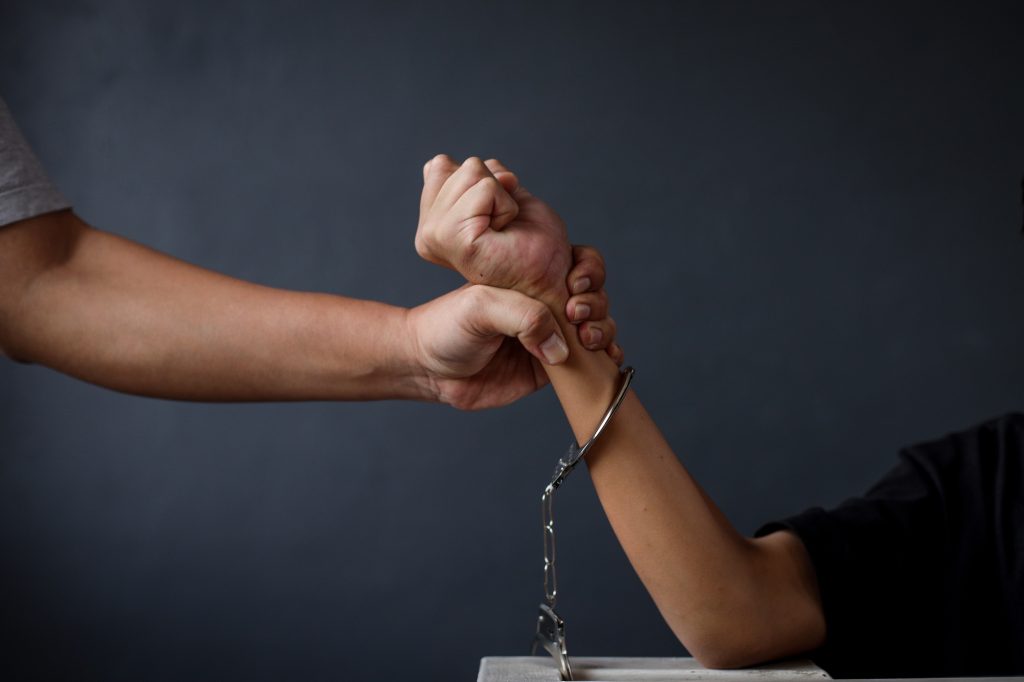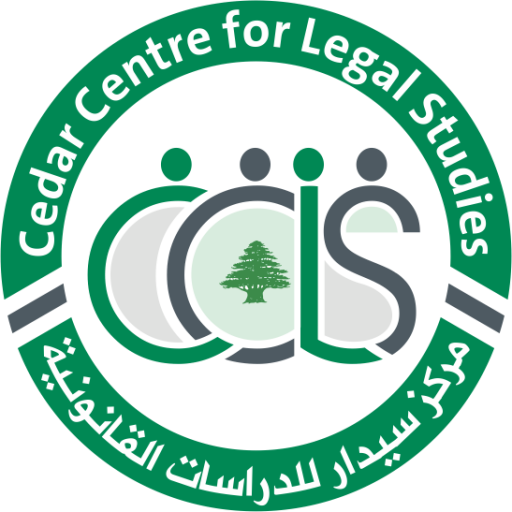Cedar Centre For Legal Studies
Case Study
Torture of Two Minors by Security Forces in Chekka: A Case of Abuse, Coercion, and Retaliation
08/08/2025

Background
This case involves two minor siblings, aged 15 and 16, who were employed alongside their father and older brother on a livestock farm in Chekka, North Lebanon, owned by a member of the Lebanese security forces. The employment relationship was marked by a financial dispute over unpaid wages.
One evening, while the two boys and a Syrian friend were returning from a barber appointment—having been summoned by a colleague from the farm—they were ambushed by the farm owner (a security officer) and other security personnel. Accused of slaughtering and consuming a goat, the boys were brutally beaten and subjected to torture on the spot before being transferred to Al-Hari Prison in Chekka.
Sequence of Events and Allegations
After the arrest and alleged beatings of the minors, their parents attempted to resolve the matter by approaching the Chekka police station, but the officer in charge reportedly refused to engage in any dialogue. The family later reported that a military investigator offered to close the case in exchange for a $5,000 bribe, which they refused. A colleague at the farm had covertly recorded the assault and shared the footage with the family. Although the officer promised to void the interrogation report if the video was deleted, he proceeded with legal action regardless, allegedly coercing the boys into signing false confessions under the threat of further torture. Fearing for their safety, the victims did not file a complaint or seek medical attention. Days later, both parents were arbitrarily detained without legal justification and were released only after legal intervention. The officer reportedly continued retaliating by threatening the family’s landlord and attempting to have them evicted.
Legal Action
On 25 June 2025, attorney Mohamad Sablouh, Head of the Legal Support Program at Cedar Centre for Legal Studies, filed a criminal complaint on behalf of the family before the Public Prosecutor at the North Lebanon Court of Appeals.
Subsequent legal steps included:
- 18 July 2025: A request was submitted to appoint a forensic physician.
- 23 July 2025: Medical examinations of the victims were conducted by a forensic doctor at the Batroun police station and prison.
- 25 July 2025: The minors gave official testimonies through their legal representative following the transfer of the case to the Investigation Unit.
Following Mr. Sablouh’s publication of a video documenting the torture of the two minors and his direct contact with the Minister of Interior, the accused officer was briefly detained for six hours before being released.
As an update on the torture complaint filed by Mr. Sablouh, the investigation has concluded, and an official report has been prepared. The file is expected to be referred to the Public Prosecutor’s Office in Tripoli for appropriate legal action.
While the minors are currently in stable physical condition, they continue to endure severe psychological trauma, worsened by ongoing threats directed at them and their family.
Demands Outlined in the Complaint
The complaint calls for:
- Opening a comprehensive investigation into the initial detention and interrogation procedures.
- Assigning a forensic doctor to document physical evidence of torture.
- Prosecuting the perpetrators under:
- Article 37 of Law 105/2018 on Enforced Disappearances and Torture
- Article 367 of the Lebanese Penal Code
- Articles 47 and 32 of the Code of Criminal Procedure
- Prosecuting the torture incident under Law 65/2017 on the Criminalization of Torture.
- Referring the case to the regular judiciary in accordance with Article 15 of Law 65/2017.
- Immediate suspension of the accused from duty pending ethical and professional rehabilitation.
Documented Violations
This case illustrates grave violations of both Lebanese law and Lebanon’s binding international human rights obligations:
- Torture and Physical Abuse: The beating of the minors by security forces, captured on video, constitutes a clear violation of Law No. 65/2017 on the Criminalization of Torture, which criminalizes acts of torture by public officials. It also breaches Article 401 of the Lebanese Penal Code and Article 7 of the International Covenant on Civil and Political Rights (ICCPR) and Article 1 of the Convention against Torture and Other Cruel, Inhuman or Degrading Treatment or Punishment (CAT), both of which Lebanon has ratified.
- Coerced Confession: Threatening minors with electric torture to extract confessions contravenes Article 47 of the Lebanese Code of Criminal Procedure, which guarantees the right to remain silent and access to legal counsel. It also violates Article 15 of the CAT, which prohibits the use of statements obtained through torture as evidence.
- Arbitrary Detention: The arrest and detention of the minors’ parents without legal justification or a judicial warrant violates Article 8 of the Lebanese Constitution, Article 9 of the ICCPR, and relevant guarantees under the Arab Charter on Human Rights.
- Attempted Bribery: The investigator’s request for a $5,000 bribe to close the case violates anti-corruption provisions under Lebanese Penal Code Articles 351–357 concerning bribery by public officials, and undermines the right to equal access to justice under Article 14 of the ICCPR.
- Threats and Intimidation: Using official capacity to intimidate the family and coerce their landlord constitutes abuse of power and may amount to Article 376 of the Penal Code regarding threats by public officials, as well as a violation of Article 2 of the CAT, which obliges states to prevent acts of intimidation and reprisals against victims.
- Obstruction of Justice: Offering to drop the case in exchange for deleting evidence constitutes obstruction of justice and manipulation of due process, contrary to both Lebanese judicial ethics and international fair trial standards (Article 14, ICCPR).
- Psychological Harm: The long-term trauma and fear experienced by the minors—evident in their repeated statements such as “He will kill us”—highlight the psychological toll of torture, as defined under Article 1 of the CAT, and underscore the state’s obligation to ensure rehabilitation and protection for victims under Article 14 of the same Convention.
This case reflects entrenched patterns of abuse and underscores the urgent need for institutional accountability, independent investigations, and effective victim protection mechanisms.
